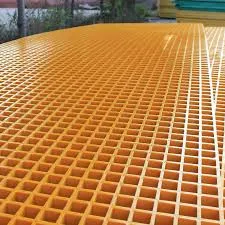
-
 Afrikaans
Afrikaans -
 Albanian
Albanian -
 Amharic
Amharic -
 Arabic
Arabic -
 Armenian
Armenian -
 Azerbaijani
Azerbaijani -
 Basque
Basque -
 Belarusian
Belarusian -
 Bengali
Bengali -
 Bosnian
Bosnian -
 Bulgarian
Bulgarian -
 Catalan
Catalan -
 Cebuano
Cebuano -
 China
China -
 China (Taiwan)
China (Taiwan) -
 Corsican
Corsican -
 Croatian
Croatian -
 Czech
Czech -
 Danish
Danish -
 Dutch
Dutch -
 English
English -
 Esperanto
Esperanto -
 Estonian
Estonian -
 Finnish
Finnish -
 French
French -
 Frisian
Frisian -
 Galician
Galician -
 Georgian
Georgian -
 German
German -
 Greek
Greek -
 Gujarati
Gujarati -
 Haitian Creole
Haitian Creole -
 hausa
hausa -
 hawaiian
hawaiian -
 Hebrew
Hebrew -
 Hindi
Hindi -
 Miao
Miao -
 Hungarian
Hungarian -
 Icelandic
Icelandic -
 igbo
igbo -
 Indonesian
Indonesian -
 irish
irish -
 Italian
Italian -
 Japanese
Japanese -
 Javanese
Javanese -
 Kannada
Kannada -
 kazakh
kazakh -
 Khmer
Khmer -
 Rwandese
Rwandese -
 Korean
Korean -
 Kurdish
Kurdish -
 Kyrgyz
Kyrgyz -
 Lao
Lao -
 Latin
Latin -
 Latvian
Latvian -
 Lithuanian
Lithuanian -
 Luxembourgish
Luxembourgish -
 Macedonian
Macedonian -
 Malgashi
Malgashi -
 Malay
Malay -
 Malayalam
Malayalam -
 Maltese
Maltese -
 Maori
Maori -
 Marathi
Marathi -
 Mongolian
Mongolian -
 Myanmar
Myanmar -
 Nepali
Nepali -
 Norwegian
Norwegian -
 Norwegian
Norwegian -
 Occitan
Occitan -
 Pashto
Pashto -
 Persian
Persian -
 Polish
Polish -
 Portuguese
Portuguese -
 Punjabi
Punjabi -
 Romanian
Romanian -
 Russian
Russian -
 Samoan
Samoan -
 Scottish Gaelic
Scottish Gaelic -
 Serbian
Serbian -
 Sesotho
Sesotho -
 Shona
Shona -
 Sindhi
Sindhi -
 Sinhala
Sinhala -
 Slovak
Slovak -
 Slovenian
Slovenian -
 Somali
Somali -
 Spanish
Spanish -
 Sundanese
Sundanese -
 Swahili
Swahili -
 Swedish
Swedish -
 Tagalog
Tagalog -
 Tajik
Tajik -
 Tamil
Tamil -
 Tatar
Tatar -
 Telugu
Telugu -
 Thai
Thai -
 Turkish
Turkish -
 Turkmen
Turkmen -
 Ukrainian
Ukrainian -
 Urdu
Urdu -
 Uighur
Uighur -
 Uzbek
Uzbek -
 Vietnamese
Vietnamese -
 Welsh
Welsh -
 Bantu
Bantu -
 Yiddish
Yiddish -
 Yoruba
Yoruba -
 Zulu
Zulu
pvc frp pipe
The Versatility and Benefits of PVC and FRP Pipes
In today's fast-paced construction and engineering industries, the choice of materials plays a crucial role in ensuring structural integrity, durability, and cost-effectiveness. Among the myriad of material options available, PVC (Polyvinyl Chloride) and FRP (Fiberglass Reinforced Plastic) pipes have emerged as popular choices for various applications due to their unique properties and advantages.
What are PVC and FRP Pipes?
PVC is a synthetic plastic polymer widely used for plumbing, electrical insulation, and various construction applications. It is known for its lightweight nature, corrosion resistance, and relatively low cost. In contrast, FRP pipes are composites made up of a polymer matrix reinforced with fibers, typically glass, which provides enhanced strength and flexibility. This combination allows FRP pipes to withstand harsh environmental conditions and mechanical stresses.
Advantages of PVC Pipes
1. Corrosion Resistance One of the most significant benefits of PVC pipes is their resistance to corrosion, making them ideal for transporting chemicals, wastewater, and potable water. Unlike metal pipes, which can rust and deteriorate over time, PVC pipes maintain their integrity in aggressive environments.
2. Lightweight and Easy to Install PVC pipes are considerably lighter than their metal counterparts, which simplifies transportation and installation. This characteristic not only reduces labor costs but also allows for easier handling on construction sites.
3. Cost-Effectiveness The production and material costs associated with PVC pipes are lower compared to other materials. This affordability makes them a preferred choice for residential, commercial, and industrial applications.
4. Longevity PVC pipes can last up to 50 years or more with proper maintenance and usage, reducing the need for frequent replacements and repairs.
Advantages of FRP Pipes
pvc frp pipe

1. High Strength-to-Weight Ratio FRP pipes are renowned for their remarkable strength-to-weight ratio. This property allows engineers to design lighter structures without compromising on strength and durability.
2. Chemical Resistance Like PVC, FRP pipes are resistant to a wide range of chemicals, making them suitable for chemical processing, wastewater treatment, and industrial applications. Their ability to withstand corrosive environments extends their lifespan significantly.
3. Temperature Resistance FRP pipes can handle higher temperatures compared to PVC pipes, making them suitable for applications where both heat and pressure are present. This characteristic is essential for industries such as oil and gas.
4. Flexibility The inherent flexibility of FRP pipes allows them to absorb vibrations and stresses, making them ideal for seismic areas or applications involving frequent movement.
Applications of PVC and FRP Pipes
Both PVC and FRP pipes find applications across various sectors. PVC pipes are commonly used in residential plumbing, irrigation systems, and drainage solutions. They are ideal for building services due to their ease of installation and maintenance.
On the other hand, FRP pipes are often found in industries handling aggressive chemicals, oil and gas production, and wastewater management. Their durability and resistance to extreme conditions make them an excellent choice for critical infrastructure.
Conclusion
In summary, the choice between PVC and FRP pipes largely depends on the specific requirements of the project at hand. While PVC pipes offer cost-effectiveness and ease of installation, FRP pipes stand out with their superior strength and resistance to harsh conditions. As the construction and engineering sectors continue to evolve, the demand for these versatile materials is expected to remain strong, providing solutions for a wide array of applications. Ultimately, both PVC and FRP pipes represent significant advancements in material technology, ensuring the safety, durability, and longevity of modern infrastructure.









